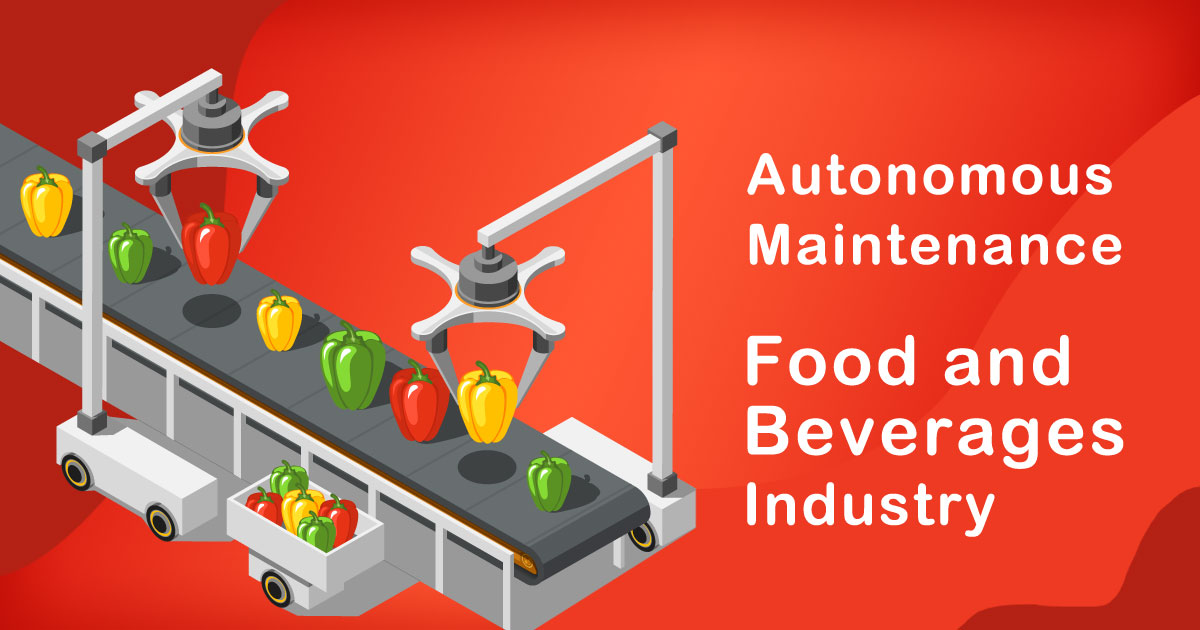Introduction
In the dynamic world of food and beverages, maintaining high standards of efficiency, safety, and quality is paramount. With consumer preferences constantly evolving, industries are under immense pressure to stay ahead of the curve. In this pursuit, the concept of autonomous maintenance has emerged as a game-changer in the Indian food and beverages sector. This article delves into the significance of autonomous maintenance, its benefits, and how it is reshaping the landscape of the industry.
The Essence of Autonomous Maintenance
Autonomous maintenance, a pillar of Total Productive Maintenance (TPM), empowers frontline workers to take responsibility for the upkeep of their equipment. Rather than relying solely on maintenance teams, operators actively participate in preventive maintenance and minor repairs. This shift in approach fosters a sense of ownership, skill development, and teamwork among the workforce.
Benefits of Autonomous Maintenance
Enhanced Equipment Reliability:
By addressing minor issues promptly, autonomous maintenance reduces the likelihood of major breakdowns. This increases equipment reliability, minimizing downtime, and subsequently boosting overall production efficiency.
Reduced Maintenance Costs:
Proactive maintenance carried out by operators can lead to substantial cost savings as it reduces the need for frequent intervention by specialized maintenance teams.
Increased Product Quality:
Regular inspections and immediate correction of defects ensure consistent product quality. This is especially crucial in the food and beverages industry, where consumer trust hinges on the highest levels of quality assurance.
Improved Safety Standards:
Autonomous maintenance emphasizes regular safety checks, fostering a safer working environment and reducing the likelihood of accidents.
Empowered Workforce:
Enabling frontline workers to handle maintenance tasks instills a sense of pride and empowerment. This can lead to increased employee satisfaction, higher retention rates, and a positive work culture.
Autonomous Maintenance in the Indian Context
In recent years, the Indian food and beverages industry has witnessed a significant transformation driven by technological advancements and changing consumer demands. As India’s middle class continues to expand, there is a growing demand for processed and ready-to-eat food products. This places considerable pressure on manufacturers to maintain uninterrupted production while adhering to stringent quality standards.
With its focus on empowering the workforce and optimizing equipment performance, autonomous maintenance has found an ideal fit in the Indian context. By implementing TPM principles, Indian food and beverages companies have experienced notable improvements in various aspects of their operations.
Case Study: XYZ Snacks Pvt. Ltd.
To highlight the practical benefits of autonomous maintenance, let’s look at a success story from the Indian food industry. XYZ Snacks Pvt. Ltd., a prominent snack manufacturer, adopted autonomous maintenance as a part of their TPM initiative.
The company initiated training programs to educate operators about machine operations, maintenance techniques, and problem-solving skills. As a result, operators became better equipped to detect abnormalities and perform corrective actions promptly.
Within six months of implementation, XYZ Snacks witnessed a 30% reduction in equipment breakdowns, leading to a 15% increase in overall production output. Additionally, the enhanced quality assurance procedures resulted in a 20% decrease in customer complaints, boosting their brand reputation.
Conclusion
The Indian food and beverages industry is poised for significant growth, but it must keep pace with ever-changing consumer expectations and the need for optimal efficiency. Autonomous maintenance has emerged as a powerful tool, empowering the workforce, enhancing equipment reliability, and improving product quality.
As more companies embrace this proactive approach, the industry as a whole can look forward to increased competitiveness, reduced downtime, and a commitment to excellence. By integrating autonomous maintenance into their operations, Indian food and beverages companies can ensure they remain at the forefront of innovation and deliver top-notch products to their customers, setting new benchmarks for the future.








